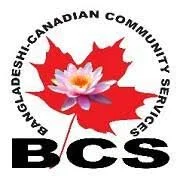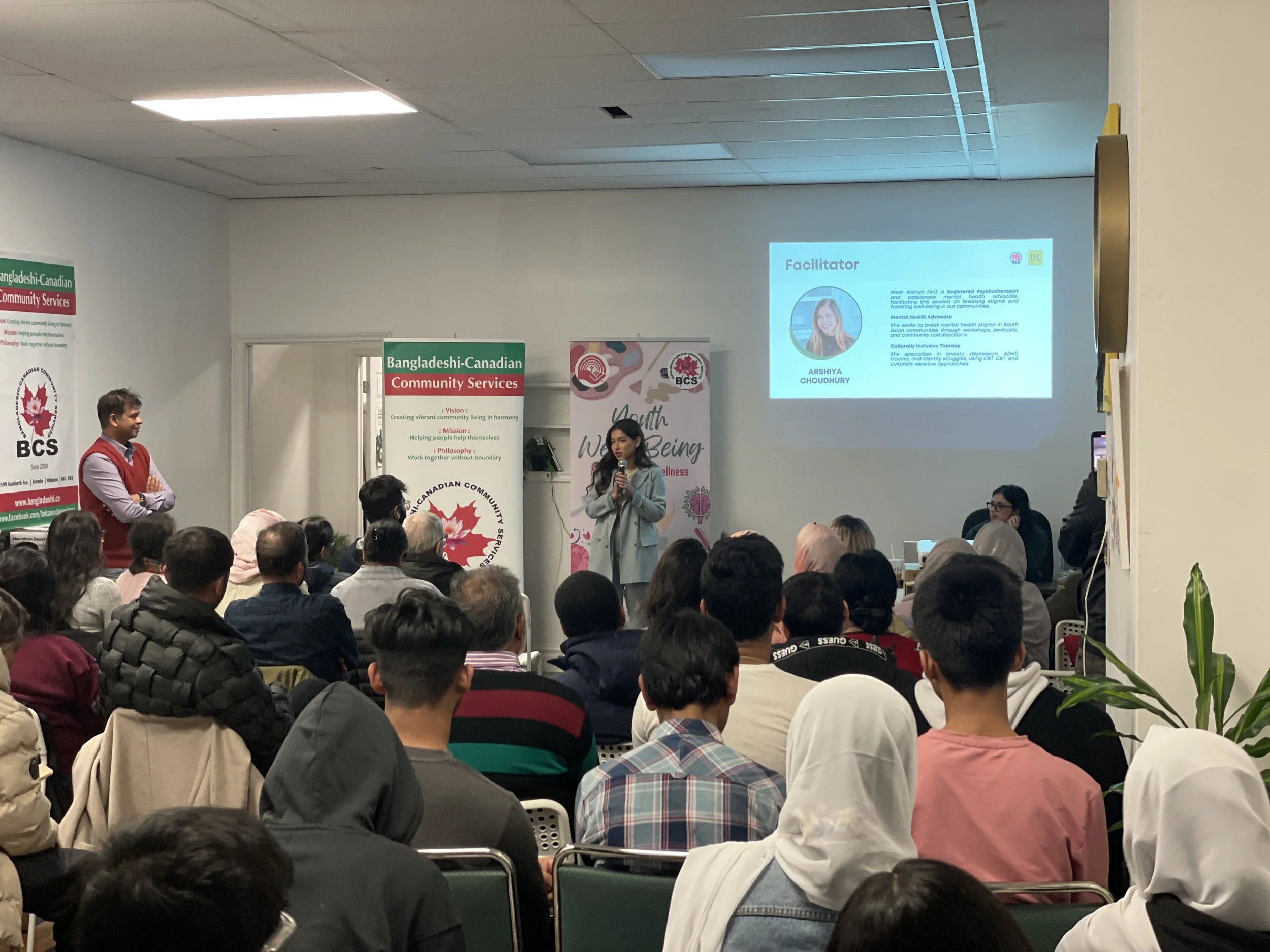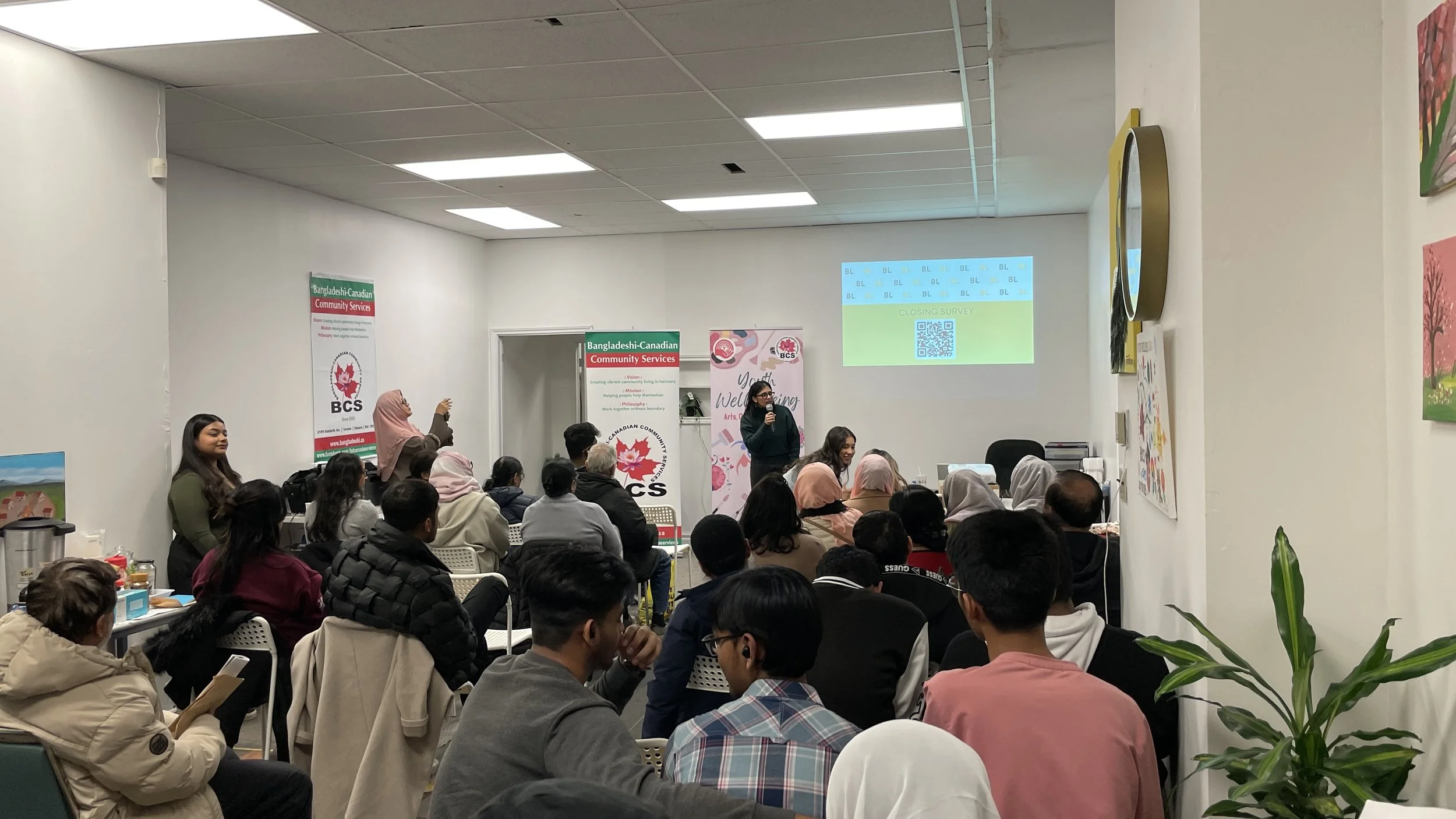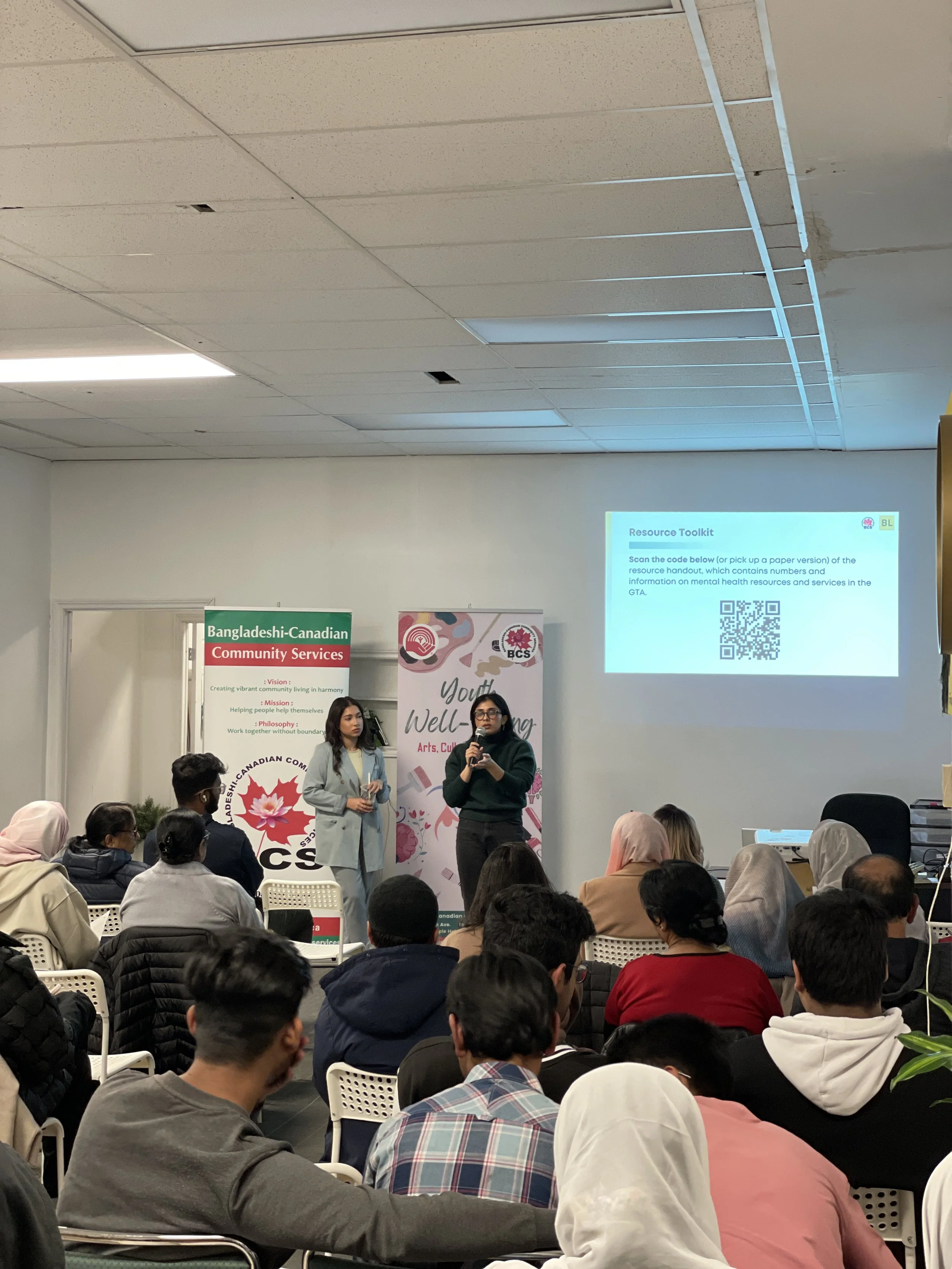Initiatives
Community Health and Wellbeing Session
Impact
-
60 attendees
-
February 28 2025
-
SDG 3: Good Health and Well-Being
-
Toronto, Canada
Our partners
Impact Summary
Through this session, members of Scarborough's Bangladeshi community discussed the cultural stigma surrounding mental health and gained crucial knowledge on how to offer support to others. The session provided culturally sensitive resources, empowering attendees to build a stronger support network and shift perceptions of mental health.
Project Team
Madhuri Kibria, Program Manager, BacharLorai
Aaraf Ahmed, Director of Partnerships, BacharLorai
Dana Ahmed, Global Impact Fellow, 2024-2025
Antonette De Los Reyes, Global Impact Fellow, 2024-2025
Meheroz Alam, Global Impact Fellow, 2024-2025
Mir Asfar Ahmed, Global Impact Fellow, 2024-2025
Nora Afifi Global, Impact Fellow, 2024-2025
SDG Alignment
Target 3.4: By 2030, reduce by one third premature mortality from non-communicable diseases through prevention and treatment and promote mental health and well-being.
Context
Mental health stigma and limited access to culturally competent care pose significant challenges for the Bangladeshi diaspora in Scarborough, Canada. After the loss of 13 young men to suicide between 2016 and 2017, the Bangladeshi community in Toronto was shaken and slowly started to feel the urgency to break the stigma around discussing mental health. This session, in collaboration with Bangladeshi-Canadian Community Services (BCS), aimed to bridge this gap by fostering mental health awareness and encouraging help-seeking behaviors.
The community session brought together both youth and adults, with the purpose of bridging generational gaps in communication and understanding. The session started with a presentation by Dr. Imam Uddin, Executive Director of Bengali Information and Employment Services (BIES), who went over the findings from his important 2020 research report titled "Youth Suicide in Toronto Bengali Community: Challenges and Strategies". He illustrated his key findings which were based on a series of interviews he and his team had conducted with youth and adults in the community to learn more about the different cultural, social, and economic factors that impact their mental health and their perceptions around seeking and discussing mental illness and wellbeing. This was followed by Arshiya Choudhury, an experienced psychotherapist of Bangladeshi origin, who facilitated an interactive presentation comprised of culturally tailored education and resources to address the unique struggles faced by the community. These include systemic barriers, cultural differences, and stressors related to migration. By creating a supportive, interactive environment, the session sought to normalize conversations around mental health, reduce stigma, and empower participants to take actionable steps toward better mental well-being.
The session looked to initiate more open conversations and community acceptance around mental health, with the hope of having a lasting impact on community members' mindset. All attendees were also given a resource toolkit containing hotline numbers and information on culturally-sensitive resources and services in the GTA.







